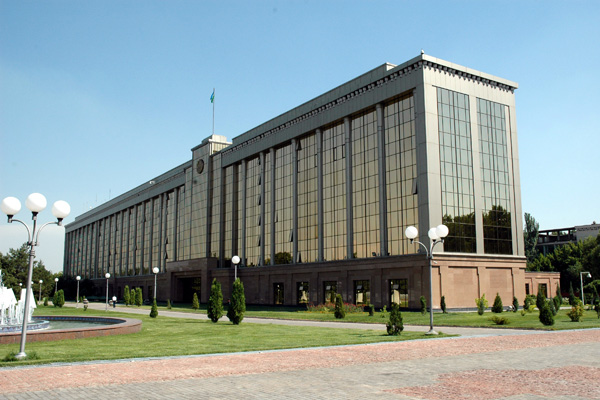
Government plans to adopt development strategy of Jizzakh
The draft strategy was published at the website of the regulatory impact assessment system for discussion.
The strategy is aimed at achieving high economic development growth in Jizzakh region in 2016-2024, which will ensure high level and quality of life for citizens. The goal was determined based on opinion and interests of state bodies, private sector and public.
The strategy offers several tasks and priorities, which are directed at strategic plan for development of Jizzakh city for 2016-2024.
It is planned to use following tools within implementation of the strategy:
1. Uniting and attracting all layers of population of the region to participate in process of planning and implementing goals and tasks of development;
2. Creating functional and effective partnership among local bodies and private sector, civil society and governing bodies;
3. Maximum use of local opportunities and available local resources;
4. Transparency of goals and means, attracted to carry out goals and tasks of social-economic development of JIzzakh city.
The strategic plan of social-economic development of Jizzakh region should determine structure, which will include several small projects directed at solving social-economic problems.
The main developers of the strategy are the UN Development Programme, national experts of Ministry of Economy of Uzbekistan and several independent experts.
Jizzakh city was founded in 1918 in the western part of Jizzakh region. Currently, it is administrative center of the region. The distance between city and Tashkent makes up 240 km on railway and 178 km on automobile road.
The territory of the city is 9,640 hectares, of which 12.9% were allocated for buildings. As of 1 January 2014, the population of the city made up 163,400 people.
The strategic goal for Jizzakh city is to achieve sustainable high levels of economic growth, which will ensure improvement of life standards of population.
Key priority of achieving strategic goal is to create favourable business environment, which will ensure creation of jobs and growth of income of population.
The second priority is to achieve have level of transparency and accountability of the local state bodies before the population to increase trust and collection of taxes. International experience shows that collection of taxes directly depends from trust of taxpayers in efficient and targeted use of budget resources.
Third priority is to strengthen role of the local state bodies to efficient interaction of cooperation among participants of the city development process.
The fourth priority is to improve accessibility of infrastructure and municipal services to the most vulnerable layers of population such as elder people, people with special needs and low-income families.